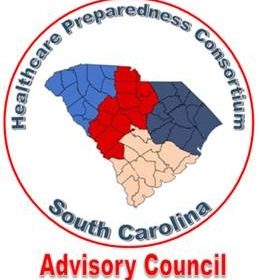DHEC helps SC Schools ‘Stop the Bleed’

In 2017, the Upstate Healthcare Coalition presented a project to provide stop the bleed kits to all regional schools in the Upstate, as part of the Hospital Preparedness Program (HPP) grant funding, through the Office of the Assistant Secretary for Preparedness and Response (ASPR) and the Centers for Disease Control and Prevention (CDC). This project proposal was presented to the HPP Advisory Council for approval. The Advisory Council, which consists of a member from each Regional Healthcare Coalition, South Carolina Emergency Management, DHEC’s Department of EMS and Trauma and the Bureau of Public Health Preparedness, recognized this project as something that should be implemented statewide. The Low Country, Midlands and Pee Dee coalitions all agreed to implement this project in their regions. At that point, Spartanburg Regional Health, MUSC, Palmetto Health and Grand Strand Health partnered with the Advisory Council and DHEC to help facilitate this project. The state of South Carolina and the Regional Healthcare Coalitions have received almost $1.06 million in federal grant funding. South Carolina is scheduled to receive more than 18,000 “Stop the Bleed” kits that will be evenly distributed among the four Public Health Preparedness Regions school districts. DHEC, in partnership with the South Carolina Department of Education, will provide public school districts “Stop the Bleed” training and supply the kits at no cost to the districts. The tourniquet kits will contain supplies and cuff-like devices that can stop severe traumatic bleeding during an emergency on the school campus or during a school event, enabling lay-people to intervene and potentially save lives in the event of a life-threatening injury. Each district will be allocated tourniquets based on population and will distribute them to the schools. The vendor, Tactical Medical Solutions, is scheduled to deliver the first of four shipments of kits to the DHEC Pharmacy in May 2018. The model for training and distribution would be to have lead nurses in all participating districts attend train-the-trainer educational sessions, where they would obtain certificates to verify their training status upon completion. DHEC (Trauma Department), upon receipt of a copy of the certificate, would arrange delivery of the supply of kits to the lead nurse’s office for distribution at the district’s discretion (factors include, but are not limited to, the number of schools, school size and the number of buildings, and student volume). There will be at least one training held in every region. District school nurses would be responsible for training the other nurses in their district, with assistance as needed from DHEC, EMS, Trauma centers, etc.
